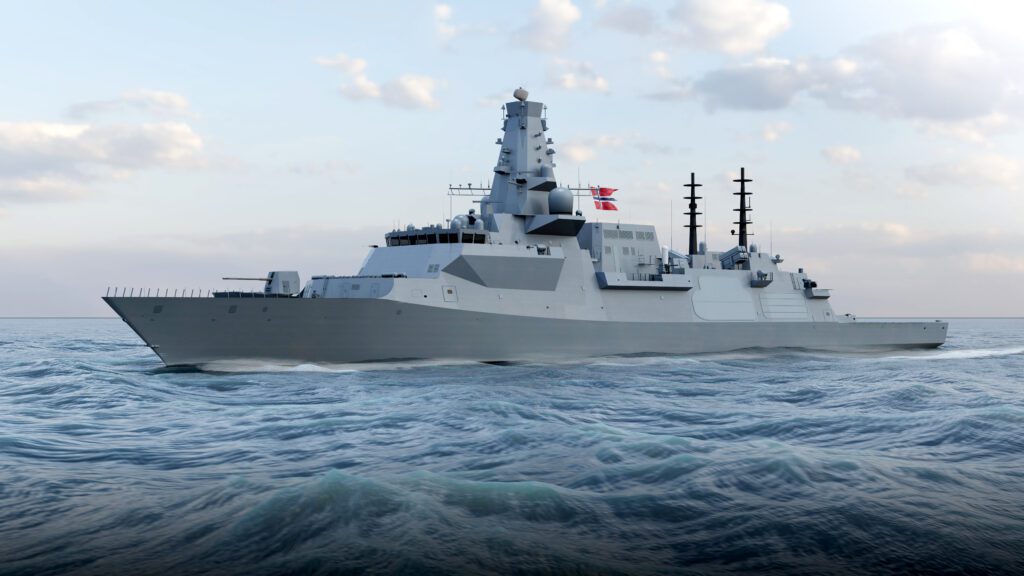In August 2025, Norway announced it would acquire at least five UK-designed Type 26 anti-submarine warfare (ASW) frigates in a deal worth roughly £10 billion, marking Norway’s largest-ever defence procurement.
Deliveries will begin in 2030 and create a combined UK–Norwegian fleet of 13 modern ASW frigates operating jointly in Northern Europe.
The agreement is explicitly framed as a long‑term strategic partnership: Both governments stress the ships’ role in defending national sovereignty and enhancing mutual capabilities.
Strengthening relations amid growing tensions
The frigate partnership is centered on co‑owning and co‑operating identical UK‐built Type 26 ships. Both countries emphasize that these warships are “essential” for defending maritime sovereignty and countering submarine threats.
By fielding a common design, Norway and the UK can integrate training, logistics and tactics, while reducing costs and allowing joint maintenance and even crew swaps.
The Type 26 is explicitly designed for anti-submarine warfare (ASW), with both sides agreeing that the frigates will “significantly strengthen” NATO’s ability to patrol the North Atlantic and Arctic, helping to deter Russian threats.
A joint procurement also maximizes economies of scale. Building all ships in UK yards (BAE’s Clyde shipyard) keeps costs competitive, and the UK government notes this largest-ever warship export will sustain thousands of jobs, many of which are set to be in Glasgow, Scotland, supporting the city’s economy and restoring pride in the Clydeside shipyards, once a bastion of Labour support.
NATO and European Defense Context
The UK–Norway deal is explicitly framed as a boost to NATO and collective defense, bolstering the coallition’s northern front.
A united UK–Norwegian ASW fleet enhances NATO’s deterrence posture in the High North. As the MoD states, the joint frigates will enable allied navies “to detect, classify, track and defeat hostile submarines” in northern Europe.
Norway’s new frigates thus bolster the alliance’s capacity to safeguard undersea lines of communication and NATO member coastlines from submarine threats.
The partnership exemplifies NATO’s emphasis on standardized platforms among allies. Norway will be joined by Australia and Canada with their adoption of the Type 26, creating a “highly-integrated force” with shared logistics and training across the globe, expanding NATO’s advanced ASW reach beyond Europe.
The timing aligns with broader Western defense efforts. European NATO members have been urged to boost spending after Russia’s 2022 invasion of Ukraine.
This deal shows Norway meeting its NATO commitments by investing heavily in cutting-edge naval defenses, and the UK leveraging its defense industry in support of alliance security, solidifying its role as the heart of Starmer’s “coalition of the willing.”
Arctic and North Sea Security Implications
The deal has clear implications for Arctic and North Sea security. Norway’s geostrategic position – bordering Russia in the Arctic – makes ASW frigates crucial. Norway is NATO’s designated monitor of the vast North Atlantic patrol area used by Russia’s Northern Fleet submarines. Equipping Norway with Type 26s directly enhances surveillance around Svalbard, the Barents Sea and North Sea approaches.
The new frigates will be tasked with tracking Russian nuclear-powered submarines based on the Kola Peninsula. This supports NATO efforts to contain Russia’s undersea operational reach, attempting to prevent sabotage and espionage.
A major role they will play is contributing to the defence of undersea infrastructure (e.g. cables, pipelines) in the region, an emerging NATO concern after European gas pipelines and telecommunications equipment have been damaged in suspected espionage acts by Russia.
Industrial and Technological Collaboration
The partnership includes broad industrial offsets and tech cooperation, benefiting both defense sectors. Under the draft accord, UK defense companies must commit to work with Norwegian industry equal to the deal’s full value.
This means Norwegian firms are guaranteed substantial roles in frigate maintenance, upgrades and possibly production of parts. British sources note the deal will sustain about 4,000 UK jobs (over 2,000 in Scotland) and involve hundreds of UK suppliers. The agreement also opens opportunities for joint development of future upgrades like new sonar and unmanned or AI powered systems.
Final Thought
Politically, the frigate deal signals deepening UK–Norway alliance ties and a unified message to adversaries. Leaders on both sides frame it as reinforcing a historic partnership.
The UK stresses the deal as evidence of its global partnership strategy and its commitment to Ukraine through strengthening the coalition of the willing – creating jobs at home while bolstering collective security.
Each of these strategic objectives – from bolstering ASW defenses to cementing industrial ties – serves multiple purposes: Strengthening NATO’s Arctic maritime posture, deepening UK–Norway integration, and signaling Western resolve to both its allies, and its potential adversaries.
Featured image via MoD / BAE Systems / Tom Smith.

